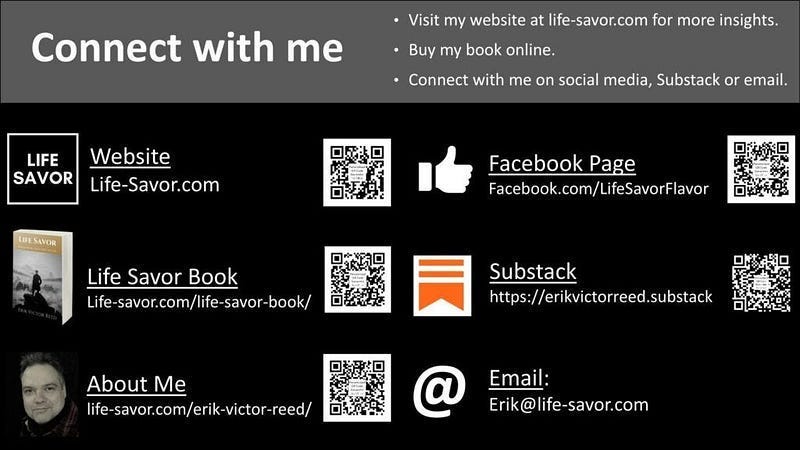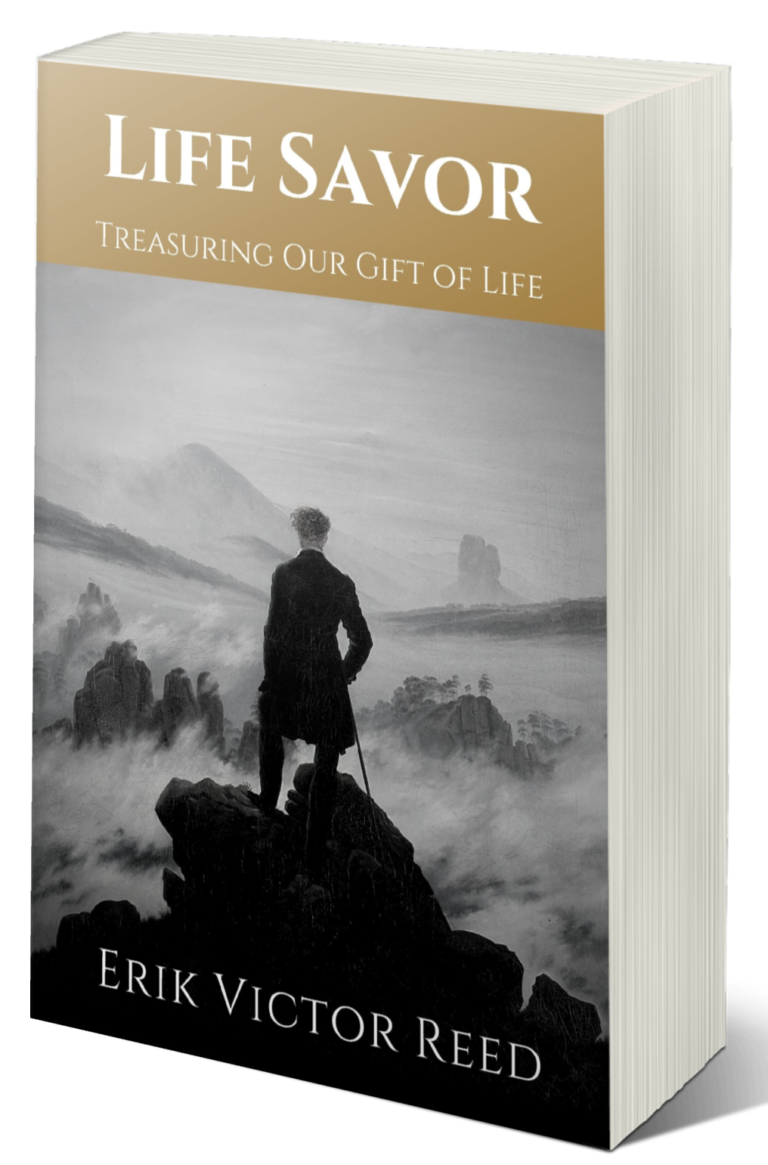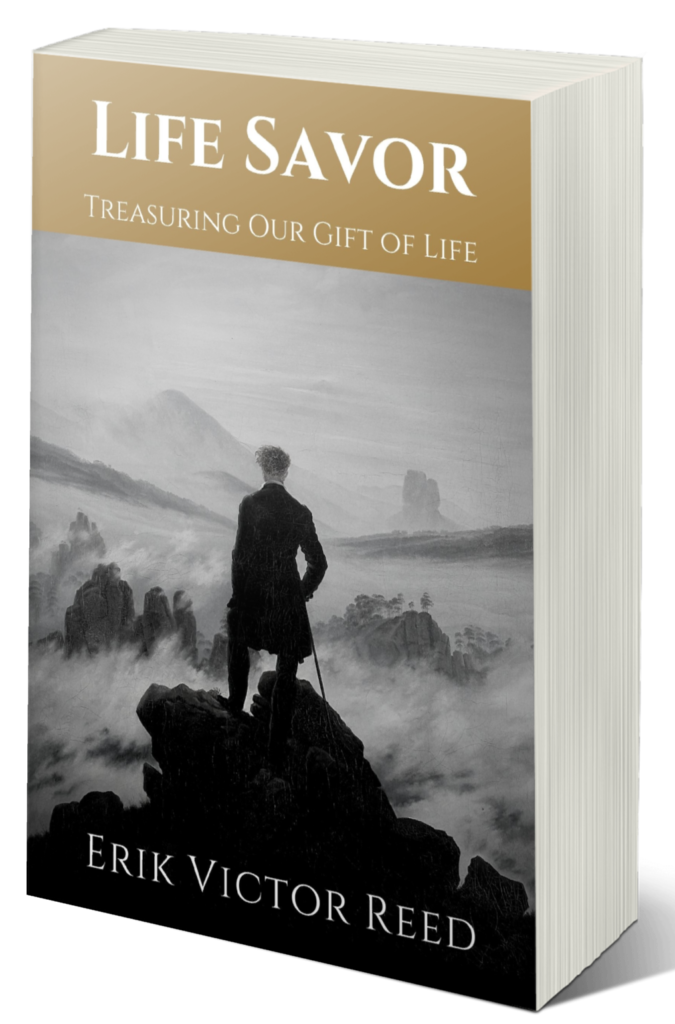When everyday life dulls us into numbness—and how to wake back up.
Most of us don’t realize it, but we live under a spell. Not a spell of enchantment, but of anesthesia. The very miracle of being alive—the staggering improbability of existing at all—slowly gets muffled until it feels ordinary, even boring.
Richard Dawkins called it “the anesthetic of soporific familiarity.” What a phrase. It captures that strange sleepwalking state where life itself becomes background noise.
Think about it:
- A sunrise is objectively astonishing—a star flinging light across billions of miles just so you can have breakfast in a lit-up kitchen. But do you feel that every morning?
- Breathing is miraculous—you’re literally exchanging gases with trees, taking in the stuff that fuels consciousness. But most of the time, we don’t even notice it.
- Even the people closest to us—partners, children, friends—can fade into routine. Their voices and faces, once radiantly appreciated, can be drowned out by the everyday hum of errands and obligations.
That’s the anesthetic at work.
Why Familiarity Deadens Wonder
The brain does it to protect us. If we responded to every sound, every sight, every breath with the awe it deserves, we’d be paralyzed by wonder. We’d never get anything done. So the brain builds shortcuts. It filters out the extraordinary and files it under “ordinary.”
From an evolutionary standpoint, this is useful. But from a human standpoint, it’s tragic. Because when everything becomes “normal,” the joy leaks out. We stop noticing. We stop tasting. We stop savoring.
It’s like living next to the ocean and no longer hearing the waves.
The Cost of Numbness
The anesthetic of familiarity costs us more than missed sunsets. It corrodes meaning itself.
When life feels numb, we start seeking intensity elsewhere—through addictions, endless scrolling, frantic striving. We chase thrills to fill the vacuum. But the problem isn’t that life isn’t thrilling. The problem is that our senses have gone dull.
We lose touch with what’s always been available: the miracle of existence itself.
And here’s the irony: if we could see life clearly, even for a single day, we would be overwhelmed with gratitude. Imagine waking up with a stranger’s eyes, seeing the world for the very first time. The light, the colors, the faces—all of it would undo you.
Three Ways to Break the Spell
The good news: anesthesia can wear off. We can shake ourselves awake.
1. Borrow Someone Else’s Eyes
Try seeing the world as if you’ve never been here before. Look at your hand, your desk, your street corner, as if you were an alien just landed. Or imagine losing your sight tomorrow. What would you want to soak in today?
2. Interrupt the Routine
Familiarity is fueled by repetition. Break it. Drive a different way to work. Eat breakfast outside. Pause in the middle of an errand and just notice the absurd privilege of being alive. Even small disruptions jolt the system awake.
3. Remember the Alternative
Mortality awareness is the ultimate antidote. Remember: the default state of the universe is nonexistence. Against all odds, you get a finite stretch of consciousness. When you recall this, even a Tuesday afternoon can feel like a holy day.
From Anesthetic to Aesthetic
The opposite of anesthesia is aesthetics—not in the shallow sense of pretty surfaces, but in the deeper sense of experiencing life as art. When you shake off the numbness, you realize life isn’t just a project to complete. It’s a performance to savor.
Like a symphony, it has crescendos and lulls, tension and release. And you get to be both the listener and the instrument.
The anesthetic of familiarity dulls the music. But you can take the earplugs out, right now, and hear it again.
Final Thought
If we only saw the world for a single day, we’d be weeping with joy and awe. But we don’t have a single day—we have many. That’s the danger. Familiarity lulls us.
So let’s break the spell. Let’s notice the ordinary with new eyes. Let’s swap anesthesia for an aesthetic experience of life.
Because life isn’t ordinary. It never was. It’s staggering. It’s glorious.
And you’re here for it.
For more like this, visit the broader project at life-savor.com, or explore the Life Savor book itself.
To learn more about Life Savor’s philosophy,
read Life Savor: Treasuring Our Gift of Life by Erik Victor Reed.








